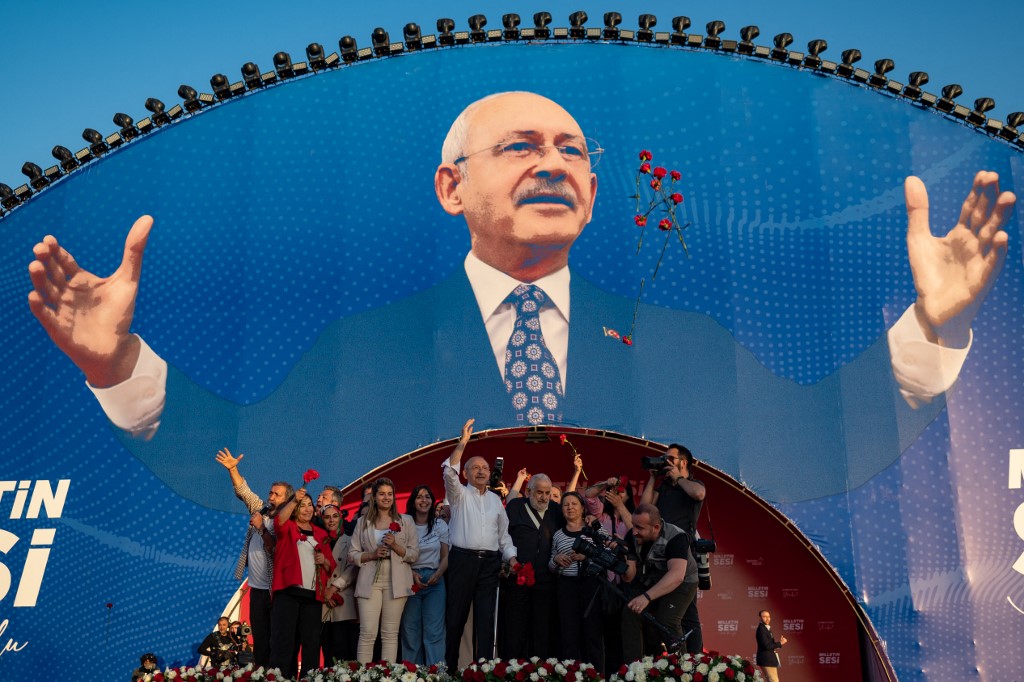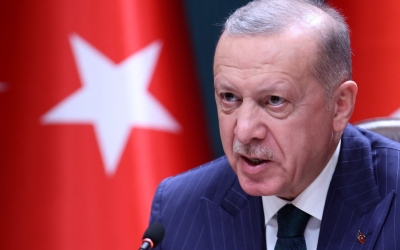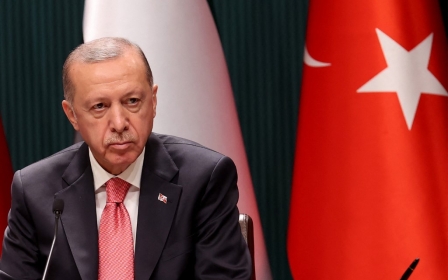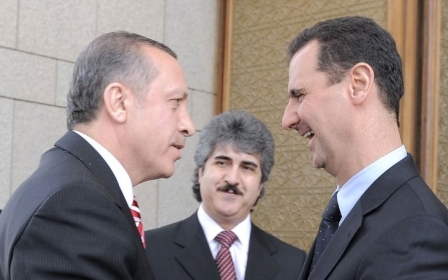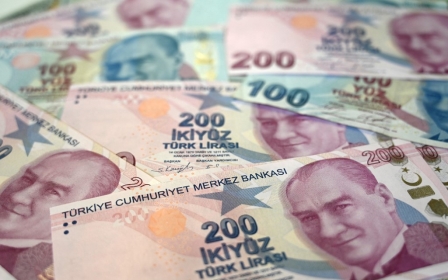Turkey: Erdogan is boosting salaries and social services to win elections
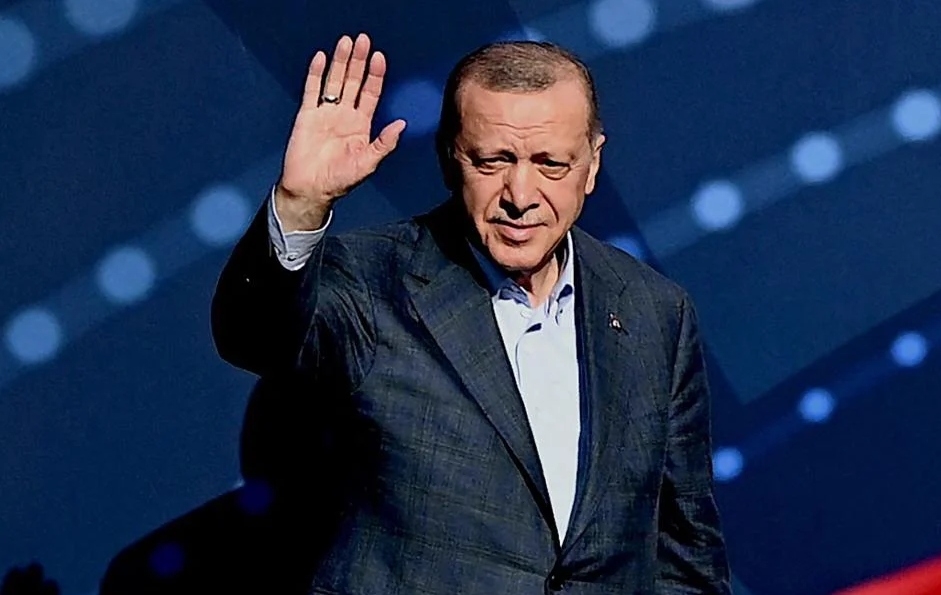
With Turkey headed for elections in 10 months, President Recep Tayyip Erdogan is already showing he won’t go down without a fight, despite the country’s economic woes.
Annual inflation exceeded 80 percent in August, and the Turkish lira has continued to depreciate against the US dollar, losing 27 percent of its value this year. But surveys, both from independent pollsters and the ruling AK Party, show the government has been gaining support in recent months. The shifting mood among voters has encouraged the ruling party to believe it can prevail in the next election.
Erdogan is willing to be creative and go the extra mile, while the opposition still lacks unity and strategy
Even observers who initially dismissed Erdogan’s chances now believe he may retain his office. The president is known for taking rabbits out of hats and thriving amid election campaigns. This time around, he is playing the traditional populist card: boosting salaries and social spending, and making inroads among different segments of society.
In July, Erdogan hiked the minimum wage by 30 percent, affecting nearly half of the country’s 30-million-strong workforce. Then, his government increased public employee salaries by around 42 percent, benefitting nearly five million public servants. The private sector followed suit.
Next, Erdogan’s government initiated payment reforms for health workers, forgave interest on student loans, launched an inexpensive housing scheme for first-time home buyers, and created a system offering cheaper credit for businesses - all strategic moves to lure certain voting blocs.
New MEE newsletter: Jerusalem Dispatch
Sign up to get the latest insights and analysis on Israel-Palestine, alongside Turkey Unpacked and other MEE newsletters
Erdogan has insisted that low interest rates have cost him big-time, but he has also managed to find $7-10bn from Russia for Turkey's dwindling Central Bank reserves, and is seeking $20bn from Saudi Arabia to fund the current account deficit, which is on steroids amid volatile energy prices.
Increasing social aid
The Turkish president didn’t stop there, announcing another relief package for low-income citizens this week: the government will pay 30 billion Turkish lira ($1.6bn) to clear loans taken by more than five million people. The energy ministry will also continue to subsidise electricity and gas bills, a policy likely to cost 200 billion lira ($11bn) this year.
The family ministry will increase social aid for people who cannot pay their bills. A new law will be ratified to allow people of “delayed pension age” to retire, placating a strong bloc that has been campaigning on this for years. The government will also convert hundreds of thousands of contract positions into permanent jobs.
Meanwhile, despite soaring inflation, Turkey’s GDP grew by 7.6 percent in the second quarter of 2022, thanks to strong tourism income, rising exports and direct cash injections from Russia and the Gulf - albeit accompanied by a skyrocketing trade deficit.
Sources close to the government say the ruling party will continue to increase the minimum wage and public employee salaries next year. “People get used to the inflation, which will slow down in the winter,” one source told Middle East Eye. “Inflation will matter less and less going forward. And with all these steps, people will feel better about their financial situation.”
Indeed, Erdogan is delivering on every populist fiscal and economic demand for voters, hoping to preserve his support base. Ten months is a long time, but he should not be counted out.
The opposition’s most likely presidential candidate, CHP leader Kemal Kilicdaroglu, has been responding to these moves by highlighting a set of issues that concern the general public. His criticisms over electricity bills, lack of dormitory space for students, high vehicle prices and retirement problems have compelled the government to take steps in these areas.
“Kilicdaroglu only speaks, but I deliver,” Erdogan once said - an apparent confession that his government acts on the opposition leader’s statements. Kilicdaroglu’s popularity is also rapidly catching up with Erdogan’s.
Leap of faith
Beyond campaigning for the issues he cares about, Kilicdaroglu doesn’t have similar financial capabilities to provide for the public, except via the opposition-run municipalities that have budgetary issues. In addition, there is an intra-opposition fight over fielding a joint candidate: the Turkish nationalist opposition doesn’t want to cooperate with the pro-Kurdish HDP against Erdogan, undercutting the possibility of incorporating their 10-percent vote share, which would be crucial to winning the race.
Erdogan, on the other hand, took a leap of faith and made a symbolic outreach to the religious community of Alevis, a nearly five-million-strong population. Alevis are generally anti-Erdogan and tend to vote for the CHP and leftist parties.
For the first time in 20 years, Erodgan last month visited a cemevi, a religious gathering place for Alevis, and met their clergy. He then attended an Alevi festival to honour one of their religious heroes. Meanwhile, the interior ministry has been promoting Alevis to state positions.
Erdogan, a devout Sunni, has always had issues with Alevis, but he has also tried to satisfy their demands. This has been interpreted by many in Ankara as an attempt to make the opposition less coherent and decrease sentiments against him among the Alevi community - a testament to Erdogan’s pragmatism.
It is hard to foresee whether he will win the upcoming election amid all the country’s significant economic and political challenges. But one thing is certain: Erdogan is willing to be creative and go the extra mile, while the opposition still lacks unity and strategy.
A disaster in Europe due to the energy crisis may provide Erdogan with another opportunity. While this could hurt the Turkish economy, it could also fuel more tourism and European orders for Turkish exports, helping the country to maintain its GDP growth. This would be a boon for his strategy of pouring money into the public realm.
The views expressed in this article belong to the author and do not necessarily reflect the editorial policy of Middle East Eye.
This article is available in French on Middle East Eye French edition.
Middle East Eye delivers independent and unrivalled coverage and analysis of the Middle East, North Africa and beyond. To learn more about republishing this content and the associated fees, please fill out this form. More about MEE can be found here.



